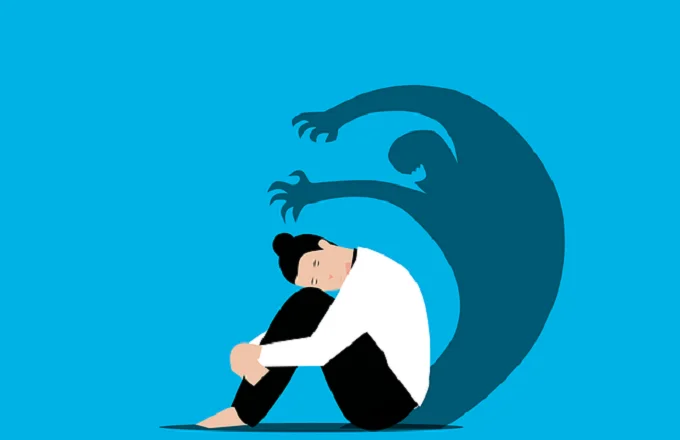Why “I should ” causes a feeling of anxiety and how to fix it

Have you ever thought that you should do something or not feel a certain way? If so, you are not alone. Many people practice this mental habit without even realizing it. But it brings joy from achievements and completed work and anxiety. So, let’s answer the question: Why can we feel so much anxiety when we say to ourselves the phrase “I should “?
How does this relate to anxiety
3 reasons why the phrase “I should” can make you feel anxious
1. Pressure

You probably know that the things you do through force bring a lot of unpleasant emotions. And all this is because you are under considerable moral pressure, forcing yourself to start them and get them to an end. Notably, the source of this intense pressure is yourself rather than circumstances. Phrases that begin with “I should ” work similarly. Considering them briefly makes you feel like a huge weight is piling on you.
2. Deprivation of individuality
There is individuality behind each of our thoughts and actions. We draw conclusions based on personal experience and make decisions using our goals and values as a compass. We cope even with complex tasks by doing what we want and being motivated. But what if the job you “should” do forces you to adjust your thoughts, feelings, or needs to the invisible book of rules created by society? For example, when you make yourself seem happy by sliding into the abyss of toxic positivity, even though you experience a range of negative feelings and do not want to have fun?
You feel your individuality is fading into the background in favor of other people’s expectations or cultural norms. Let’s look at the example described above: you put on a “mask of positivity” in order not to seem sullen and depressed to others and thereby deprive yourself of the opportunity to express the feelings that you are experiencing. Over time, all your “I should ”, going against your actual needs and desires, create an internal conflict that makes you feel inadequate and wrong, as well as experience significant anxiety.
3. Burnout

A person who constantly repeats the phrase “I should” to himself will experience burnout faster than people who do not use it. Visit. A F R I N I K . C O M .For the full article. And the more often he repeats these words, the more anxious he feels. Why? It’s simple: the feeling that you have to creates additional stress. It complements the existing emotional tension and is accompanied by the feeling that you cannot achieve what you have planned.
In that case, mental health goes out of order. No matter how hard you try, you will feel that you are not good enough, undermining your confidence, making you disappointed in business, and constantly making you anxious.
How to stop imposing anything on yourself
Breaking the habit of telling yourself that you must do something can take time and effort. However, if you understand your thinking patterns, you can cope with them.
Identify the source of your “must”
It’s important to figure out where you got the habit of telling yourself that you should or shouldn’t do something. It can be associated with high standards and expectations, beliefs originating in your childhood, or cultural norms. For example, if your parents constantly told you that there is such a word “necessary” and you must cope with your responsibilities, you could develop this approach to everything you do. Understanding your “must” source will make it easier for you to deal with it and rethink your task approach.
Change the wording
To feel less pressure, which is a trigger for anxiety, change the wording. Which phrase is more straightforward: “I have to do this” or “I need to do this for my well-being”? The more often you base your actions on your desire or need for an important reason, the easier your life becomes. Instead of “I should,” use “I choose “or “I could.”
Even if you have a difficult task ahead of you, changing your speech will save you from additional stress and anxiety, helping you complete it with fewer emotional costs. In addition, changing your speech gives you a sense of control and empowerment. For example, the phrase “I decided to take a break” seems more inspiring than “I have to rest for five minutes and get to work.”
Look into the eyes of your fear and challenge it

Imagine you feel exhausted, and all your muscles hurt, driving you crazy. But you keep telling yourself you must go to the gym, no matter what. Deep down, you realize this is not an entirely correct statement in the circumstances, but you keep replaying this thought. To cope with anxiety, it is necessary to fight back against your “must” by challenging your assumptions. Why should you go to the gym even though you feel like falling apart?
Are there any hidden fears associated with your statement, such as the fear that you will not lose weight in the time you set for yourself? Having figured out what fear is behind your “must,” you can challenge it and find arguments to help you make the right decision. Yes, you may be afraid that the effect of your workouts will decrease due to skipping a day at the gym, but you need to ask yourself: Is it worth your health? By asking yourself this question, you can make an informed decision and not just unthinkingly act by your “must.”




